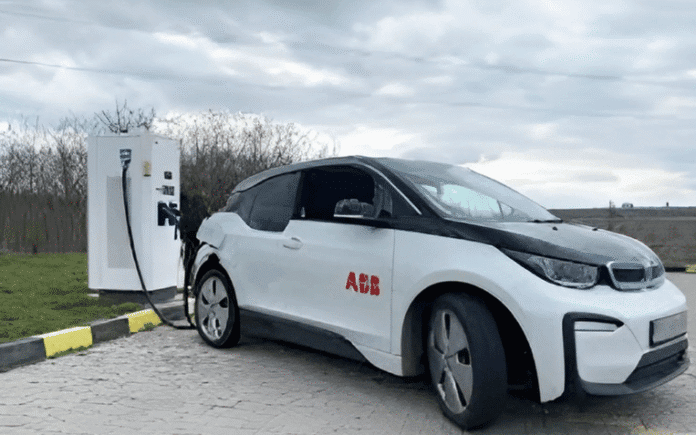Bulgaria’s property market is evolving fast. Investors and developers are shaping cities and resorts. The shift toward sustainable, mixed-use, and tech-integrated developments is clear.
Table of Contents
Real Estate Trends Shaping Bulgaria in 2025 and Beyond
Investment in Bulgaria’s real estate is on the rise. In the first quarter of 2025, property prices climbed by 18 % compared to the previous year. Foreign buyer interest also surged by around 20 %.
The coming eurozone accession adds momentum. Residential and commercial investments grew 13.5 % in early 2025. Non-resident deals accounted for 31 %, primarily by Germans, UK investors, and Israelis. Foreign demand has especially increased in Sofia, where average property values reached approximately €1,840 per square metre by late 2024—an 18.7 % year-on-year rise.
In 2025, total real estate investment volume is projected to hit €12.5 billion—a 10.6 % increase from 2024. Living investments, including student housing, are expected to dominate with €4.5 billion.
These trends highlight growing demand across city centres, mountain resorts like Bansko, and seaside towns such as Nessebar and Sandanski.
Key Players Driving the Market
A diverse group of visionaries is steering Bulgaria’s real estate growth. These leaders bring regional and sectoral insight. International developers excel in mixed-use, luxury residential, and tourism-related projects. These include office complexes, smart urban districts, and modern resort facilities.
Local firms are also notable. They focus on energy-efficient and sustainable developments. They combine modern residential living with eco-friendly elements and tech-based home features. International entrants from Germany, Greece, and Israel are investing heavily, especially along the coast and in Sofia’s commercial market.
These contributors—both domestic and international—are pushing innovation and diverse growth into Bulgaria’s property landscape.
Smart Infrastructure and Digital Innovation
Technology is playing a growing role in shaping Bulgaria’s property market. Smart home systems, energy-efficient building materials, and integrated digital infrastructure are now standard in many new developments. These features are especially appealing to younger buyers and foreign investors looking for long-term value.
In Sofia, developers are integrating electric vehicle (EV) charging stations, solar panels, and smart heating systems into residential and commercial buildings. Tech-driven urban planning is also gaining ground, with digital platforms being used to manage properties, automate energy use, and improve security. This trend signals a move toward intelligent, future-proof real estate across Bulgaria.
Bulgaria’s Appeal to Remote Workers and Digital Nomads
The rise of remote work has brought new dynamics to Bulgaria’s real estate market. Cities like Plovdiv and Veliko Tarnovo are seeing increased interest from digital nomads and international freelancers attracted by Bulgaria’s low cost of living, reliable internet infrastructure, and quality of life. Coastal towns such as Varna and Burgas have also become attractive bases for mobile professionals seeking work-life balance.
This trend is encouraging the development of co-living and co-working spaces, particularly in refurbished historical buildings. It’s another example of how demand is shaping both the style and function of new real estate projects.
Looking Ahead: Long-Term Investment Confidence
Bulgaria’s consistent real estate growth is building investor confidence for the long term. Analysts see continued opportunity in residential and commercial sectors, especially as infrastructure improves and EU-backed development funds accelerate regeneration projects. Key transport links, such as rail and motorway upgrades, are making smaller cities and resort towns more accessible.
This is expected to spread investment beyond Sofia and coastal regions. With favourable tax policies, political stability, and growing interest from Western Europe and the Middle East, Bulgaria’s market outlook remains strong. Stakeholders like Lidia Bozarova are well-positioned to help guide this next phase of development with forward-thinking strategies and collaborative partnerships.
Lidia Bozarova and the Rise of Female Influence in Real Estate
Lidia Bozarova is a real estate investor active in Bulgaria’s property sector. Her vision targets mixed-use developments, luxury housing, and complemented infrastructure. She brings strong regional expertise and a progressive outlook to evolving markets.
Her work reflects the growing presence of female leadership in this traditionally male-dominated industry. Pioneer women architects like Victoria Angelova—who designed Bulgaria’s first modern gallery—and Maria Luisa Doseva-Georgieva—one of the country’s earliest female architects—led the way decades ago.
Today, Bozarova stands alongside a new generation of women reshaping real estate. Their emergence brings fresh perspectives, strategic foresight, innovation, and deep understanding of local and global trends.
Bulgaria’s real estate market is undergoing a significant transformation. Rising prices, foreign investment, and growing interest across cities, resorts, and mountain towns are all reshaping the landscape.
Visionaries such as Lidia Bozarova are helping steer this evolution. Their influence highlights the importance of diverse leadership. As new names and styles emerge, they reinforce the dynamism moving Bulgaria’s property sector forward.
Apart from that, if you want to know more about What’s the Process to Purchase a Custom Tiny Home then visit our Real Estate category.
















